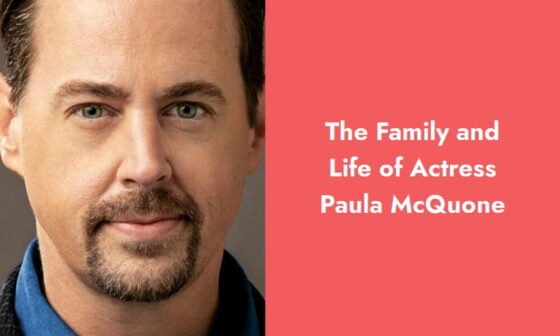Key Points
- Cleonice Rossi Martinelli was born in São Paulo, Brazil, on December 27, 1940.
- First wife of Brazilian singer Roberto Carlos.
- Due to Brazil’s strict divorce rules, Cleonice married Roberto Carlos in Bolivia in 1968.
- The couple had two children, and Roberto Carlos adopted her daughter from a previous marriage.
- Their marriage dissolved in 1979, and Cleonice died of breast cancer on May 6, 1990.
- Her children and grandkids continue her legacy, including her granddaughter Giovanna’s October 2024 wedding.
Few persons in Brazilian cultural history exemplify the interwoven themes of personal sacrifice, love, and familial lineage as eloquently as Cleonice Rossi Martinelli. Cleonice, known as Nice, was a mother, nurturer, and silent but persistent presence in a family that had seen both victory and sorrow. She was close to Roberto Carlos, one of Brazil’s most famous artists.
Early Life and Background
Born in São Paulo, Cleonice Rossi Martinelli was born on December 27, 1940. Cleonice was the daughter of publicist Edmundo Rossi and Minerva Schincarioli. Though humble, her upbringing was likely influenced by media and communication. Her childhood in São Paulo, a city with strong cultural and economic vitality, shaped her destiny in entertainment.
With little specifics regarding her early schooling and personal interests, Cleonice’s childhood provided the groundwork for her eventual responsibilities in her family and Roberto Carlos’ life. Her father’s occupation may have given her delicate insights into publicity and media, which would later impact her personal life as she became involved with a budding musical talent.
First Marriage, Early Motherhood
Before her famous romance with Roberto Carlos, Cleonice struggled and enjoyed marriage and children. Antonio Carlos Affonso Martinelli were her 1964 husband. Cleonice learned about motherhood from this relationship, which is not well recorded. This union produced Cleonice’s 1965 daughter Ana Paula.
As a single mother when her first marriage ended, Cleonice had a difficult time that would mold her toughness and tenacity. Raising Ana Paula alone strengthened her character and shaped her subsequent relationships. In this effort and tenacity, she met Roberto Carlos, who changed her life.
The Crucial Roberto Carlos Meeting
Cleonice’s unexpected meeting with Brazilian music star Roberto Carlos in the late 1960s changed her life. Cleonice became Roberto Carlos’ girlfriend and supporter as he rose to popularity. Their romance, set in a country where divorce wasn’t permitted until 1977, required an innovative strategy to formalizing their union.
Brazil’s severe divorce rules affected the couple’s 1968 marriage in Santa Cruz de la Sierra, Bolivia. This marriage launched Cleonice’s career and began a new chapter of personal closeness and public prominence. Roberto Carlos adopted Ana Paula, incorporating her with their growing family. They had two additional children: Roberto Carlos Segundo, known as Dudu Braga, in 1968 and Luciana in 1971.
Cleonice and their early passion may have inspired Roberto Carlos’ 1967 song “Meu Grito.” This creative manifestation showed how Cleonice shaped Roberto Carlos’s life and music and public opinion.
Life During and After Marriage
Cleonice helped Roberto Carlos grow to fame during their marriage, which lasted until 1979. Cleonice remained a constant in Roberto Carlos’ personal life while he sold millions of records and became a musical legend. She may not have sought the spotlight, but her contributions to a loving and supporting household were enormous as she focused on family.
Dudu Braga, their glaucoma-afflicted son, required much of their attention. His low vision required extra attention and added to their household’s complexity. Luciana, their daughter, traveled the world with Dudu and settled in London, keeping a low profile.
Cleonice became more secretive after their 1979 divorce. After returning to São Paulo, she generally retreated from public limelight. Her later years are not well documented, but her fight with breast cancer—which marked her final chapter—was tragic.

Later Life, Illness, Death
Breast cancer claimed Cleonice’s life on May 6, 1990, at 49. Her death affected her loved ones and Roberto Carlos and his family’s connected narrative. Cleonice is buried at the Cemitério do Araçá in São Paulo, a silent memorial to her life and efforts.
While personal, her cancer battle revealed her fragility beneath her collected demeanor. She was deeply missed by her family, especially Roberto Carlos, who had loved her for decades. After such a tragedy, the family suffered other catastrophes, cementing Cleonice’s legacy of fortitude and recollection.
Legacy, Family Persistence
Through her children and grandkids, Cleonice Rossi Martinelli’s legacy lives on. Her family has faced life’s hardships with the same tenacity she did. A chart of major family links shows her lasting impact:
| Relation | Name | Birth | Death | Notes |
|---|---|---|---|---|
| Self | Cleonice Rossi Martinelli | Dec 27, 1940 | May 6, 1990 | Died of breast cancer, buried at Cemitério do Araçá |
| Father | Edmundo Rossi | Unknown | Unknown | Publicist |
| Mother | Minerva Schincarioli | Unknown | Unknown | |
| First Husband | Antonio Carlos Affonso Martinelli | 1938 | Deceased | Married around 1964 |
| Daughter (First Marriage) | Ana Paula Rossi Martinelli | 1965 | 2011 | Died of heart attack |
| Second Husband | Roberto Carlos | Apr 19, 1941 | Alive | Married 1968, divorced 1979 |
| Son (With Roberto) | Dudu Braga | Dec 14, 1968 | Sep 8, 2021 | Died of peritoneal cancer, music producer |
| Daughter (With Roberto) | Luciana Carlos | 1971 | Alive | Lives in London, maintains a private life |
| Granddaughter | Giovanna Braga | Unknown | Alive | Married in Oct 2024, daughter of Dudu |
The table above shows Cleonice’s legacy through family relationships. Despite being adopted and loved by Roberto Carlos, her daughter Ana Paula died early in 2011 from health issues. In 2021, beloved son Dudu Braga died of peritoneal cancer. He had worked in music production and radio presenting. These losses have greatly touched the family, reaffirming resilience and the value of cherishing every moment.
Luciana, another Cleonice descendant, lived in London but maintained strong ties to her Brazilian roots. Her mother’s ideals are evident in her delicate balance between privacy and family.
In October 2024, Cleonice’s granddaughter Giovanna Braga married, bringing her heritage to light. Roberto Carlos attended this fresh beginnings ceremony and posted about it. His touching speech and public joy demonstrate the family’s enduring connections. Giovanna’s wedding is a personal milestone and a reflection of Cleonice’s energy, which lives on in every new generation.
The Cultural Impact of Quiet Living
Cleonice’s life, though eclipsed by Roberto Carlos’s fame, illustrates personal sacrifice, quiet courage, and the often-unpublicized effect of those who support and develop popular individuals. From a young girl in São Paulo to a woman navigating love, parenthood, and sickness, her story exemplifies the endurance of many unsung heroes in personal histories.
Her effect on Roberto Carlos went beyond friendship. Many feel their profound emotional connection inspired some of the music that defined their careers. The song “Meu Grito” recalls their early romance, which was defined by creative enthusiasm and the difficulties of integrating personal and public life.
Cleonice’s ability to balance her obligations as a mother, wife, and partner to a global music legend while experiencing personal challenges made an unforgettable effect on everyone who knew her. Her tale shows that every public figure has a network of personal ties that shape their success and survival.
Family and Culture Carry the Legacy
Cleonice Rossi Martinelli’s story is part of Brazilian culture. She has inspired meditations on family, love, and personal legacy via her celebrated and quiet moments. Her descendants carry Cleonice’s teachings of tenacity and caring as they navigate accomplishments, challenges, and celebrations.
Family gatherings, anniversaries, and public occasions like Giovanna’s wedding give us a chance to honor her legacy. Cleonice’s impact is recognized in every new chapter of her family’s story since public memory and personal family memories combine seamlessly.
In retrospect
Cleonice Rossi Martinelli’s tale is one of love, heartbreak, tenacity, and family loyalty. She became famous via her relationship with Roberto Carlos, but her quiet drive and tenacity characterize her legacy. From her childhood in São Paulo to her impact on her children and grandkids, Cleonice’s life exemplifies the strength of love and family relationships.
Her narrative of triumphs and heartbreaks resonates with individuals who value personal sacrifice and a purposeful existence. Giovanna’s wedding and other family milestones honor her life and encourage future generations.
FAQ
Cleonice Rossi Martinelli was famous for what?
Cleonice, the first wife of Brazilian musician Roberto Carlos, was a loving mother who helped preserve her family tradition.
Where and when was Cleonice born?
Cleonice was born in São Paulo, Brazil, on December 27, 1940.
How did Cleonice marry Roberto Carlos?
Cleonice and Roberto Carlos married in Santa Cruz de la Sierra, Bolivia, in 1968, creating a blended family with children from both marriages according to Brazil’s divorce laws.
What kids did Cleonice have?
Cleonice’s first marriage to Antonio Carlos Affonso Martinelli produced Ana Paula. Dudu Braga and Luciana Carlos were her children with Roberto Carlos.
What were Cleonice’s biggest health issues?
Cleonice died of breast cancer on May 6, 1990. Her son Dudu Braga died of peritoneal cancer in 2021.
How does Cleonice’s legacy endure?
Her children and grandkids carry on her heritage. Her granddaughter Giovanna’s October 2024 wedding shows how her legacy is still cherished.
Where is Cleonice buried?
Cleonice is buried at the Cemitério do Araçá in São Paulo, now a tribute to her life and accomplishments.
How did Cleonice affect Roberto Carlos’s career?
Despite her anonymity, Cleonice influenced Roberto Carlos. Their closeness may have influenced his early compositions, notably “Meu Grito.”






